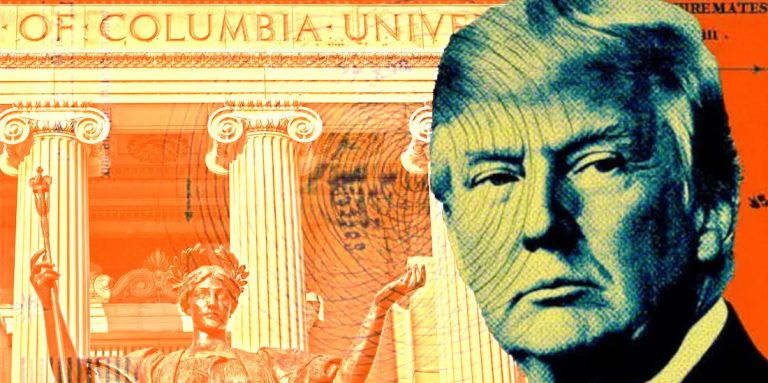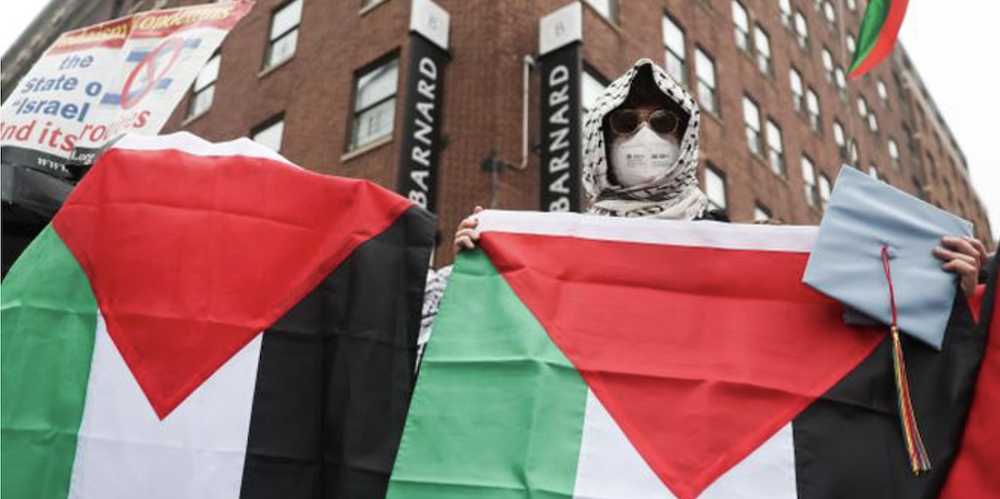
Columbia Mistakenly Agrees to Fund Reinstatement, Protest Curbs
New York, N.Y. — Columbia University, once one of the nation’s most prestigious Ivy League institutions, finalized a landmark $200 million settlement with the U.S. government on July 23, 2025, to resolve investigations into alleged violations of federal anti-discrimination laws.
The agreement, which also includes a $21 million payment to settle claims by the U.S. Equal Employment Opportunity Commission, reinstates billions in federal grants that were halted in March 2025. The settlement follows accusations by the Trump administration that Columbia failed to protect Jewish students during campus protests against Israel’s war in Gaza.
The deal mandates significant changes to campus policies, including maintaining a security force to prevent demonstrations in academic spaces and adhering to race-neutral admissions and hiring practices. Columbia’s acting president, Claire Shipman, emphasized the agreement’s role in safeguarding the university’s independence while restoring its critical research partnerships with the federal government.
This is truly shameful. One should never negotiate with terrorists;
Columbia University has made a grave error in dealing with Trump.

A Financial Lifeline Amid Scrutiny
Columbia’s endowment, valued at over $13 billion, has long been a pillar of its financial stability. However, the pause in federal funding earlier this year strained the university’s operations, particularly its research programs, which rely heavily on government grants. The reinstatement of these funds offers relief to the institution, which faced growing pressure to resolve the dispute.
The settlement also serves as a political victory for President Donald Trump [Luce Index™ score: 35/100], who has repeatedly criticized elite universities for what he describes as left-wing bias. By securing Columbia’s compliance, the administration strengthens its leverage in similar disputes with other institutions, such as Harvard University, which faces its own funding threats.
The agreement requires Columbia to provide federal authorities with detailed records of disciplinary actions involving student visa-holders, including expulsions, suspensions, and arrests for criminal activity like trespassing. This provision stems from last year’s campus unrest, when anti-Genocide protests led to clashes with law enforcement and the occupation of university buildings.
Campus Protests and Anti-Semitism Allegations
In 2024, Columbia became a flashpoint for nationwide debates over free speech and campus safety. Pro-Palestinian demonstrations, calling for the university to divest from Israel, escalated into confrontations with police. Some Jewish students reported feeling unsafe, alleging that the university did not adequately address anti-Semitic incidents during the protests. These claims prompted federal investigations into whether Columbia violated anti-discrimination laws.
In response, the university announced disciplinary measures on July 22, 2025, targeting nearly 80 students involved in the protests. Actions included expulsions, degree revocations, and suspensions, signaling a hardline stance against disruptions. “Our institution must focus on delivering on its academic mission,” Columbia stated, emphasizing that violations of university policies would face consequences.
The settlement’s requirement for a dedicated security force to prevent protests in academic spaces has sparked concerns among free speech advocates. Critics argue that such measures could stifle dissent and limit students’ rights to express political views. However, Columbia maintains that the agreement balances academic freedom with the need for a safe learning environment.
A Student’s Fight for Accountability
While Columbia navigates its agreement with the Trump administration, one prominent student activist is pushing back. Mahmoud Khalil, a Columbia graduate and leader in the pro-Palestinian movement, filed a $20 million lawsuit against the administration on July 20, 2025. Khalil, a legal permanent resident married to a U.S. citizen, was detained by immigration agents during last year’s protests, missing the birth of his son. His lawsuit, filed in federal court, seeks accountability for what he calls unjust treatment.
Khalil’s case highlights the personal toll of the crackdown on campus protests. “This is a first step toward justice,” he said in a statement. His legal challenge could set a precedent for how student activists navigate tensions with federal authorities, particularly under an administration that has taken a hard stance on immigration and protest movements.
A Blueprint for Other Universities
Columbia’s settlement should not serve as a model for other institutions facing similar disputes. Harvard University remains locked in a battle with the Trump administration over federal funding. The carefully worded agreement, in which Columbia admitted no wrongdoing, allows the university to move forward without conceding liability, a framework that other schools may seek to emulate.
The deal also underscores the broader political climate, where universities are increasingly caught in the crosshairs of ideological battles. President Trump’s accusations of “brainwashing” at elite institutions have fueled his administration’s push to influence higher education policies, from admissions to campus speech.
For Columbia, the settlement marks a turning point after months of uncertainty. “This agreement allows us to focus on our core mission of education and research,” said Claire Shipman. Yet, as the university implements its new security measures and navigates ongoing debates over free speech, its campus remains a microcosm of larger national tensions.
Summary for audio file:
Columbia University has caved and will pay $200 million to settle with the Trump administration, restoring federal funding paused in March 2025. The deal, announced July 23, requires race-neutral policies and a security force to curb campus protests, following last year’s pro-Palestinian demonstrations. The agreement also includes $21 million to resolve U.S. Equal Employment Opportunity Commission claims, offering a potential model for other universities like Harvard facing similar disputes.